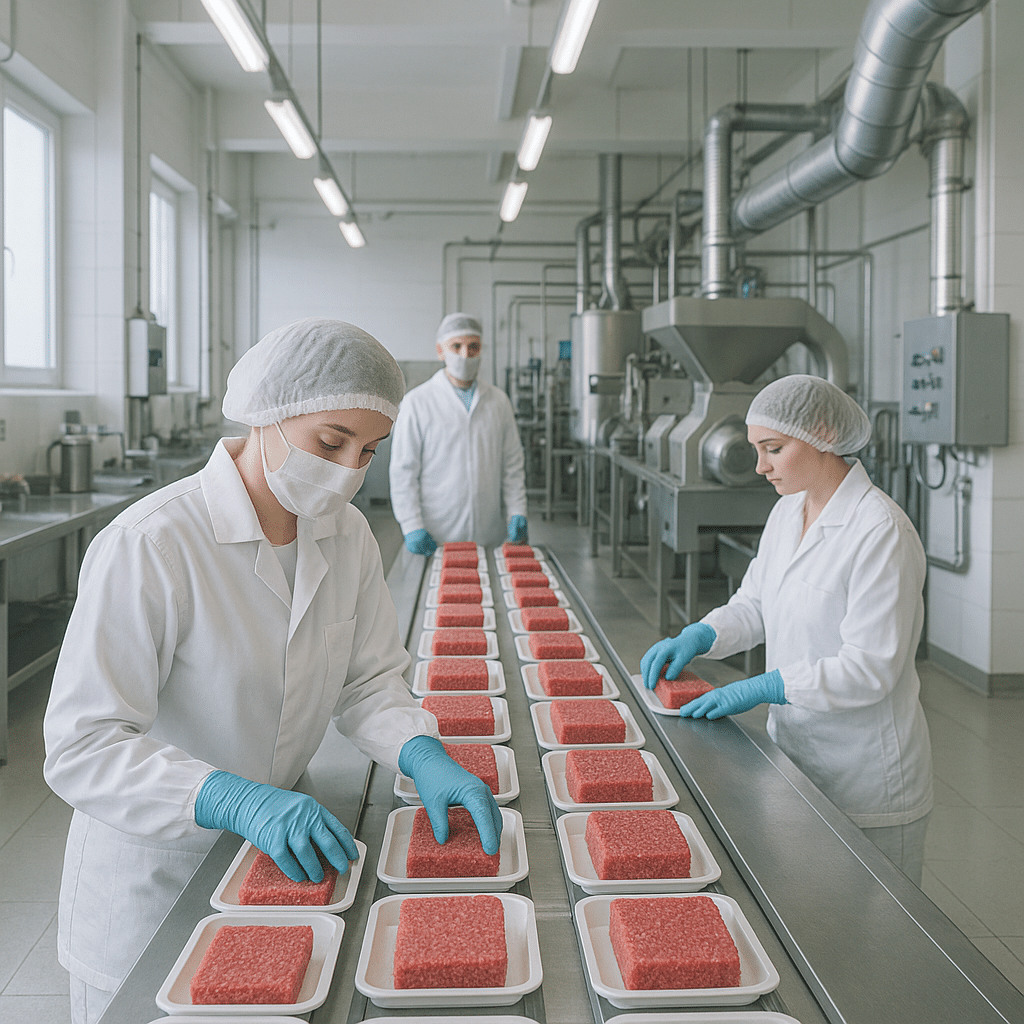Here’s the translation in American English:
—
In the food industry, hygiene stands as a fundamental pillar, not only to comply with regulations but also to ensure the safety of the products that reach consumers. Recently, the Department of Health of the Generalitat of Catalunya has urged around twenty slaughterhouses to implement improvement plans after detecting deficiencies in self-monitoring for bacteria such as Salmonella and Campylobacter. This situation highlights the urgent need to reinforce cleanliness standards to prevent risks throughout the food chain.
Hygiene goes beyond just washing hands. To avoid cross-contamination and ensure the safety of products, it is essential to adopt a series of practices that include thorough cleaning of surfaces, the use of protective equipment, and ongoing staff training. Every element, from the workers to the procedures implemented, plays a vital role in the fight against pathogens responsible for severe illnesses, such as diarrhea and fever, which can lead, in extreme cases, to hospitalization.
This preventive approach becomes particularly relevant in light of the alert issued by health authorities, which have pointed out significant discrepancies between the data reported by the slaughterhouses and official figures. This situation underscores the need to thoroughly review hygiene protocols, as inadequate control of these bacteria poses a direct threat to public health. The World Health Organization estimates that around 600 million people fall ill each year due to contaminated food consumption, highlighting the urgency of effectively addressing this issue.
In this context, companies like PAPELMATIC, with over 60 years of experience in hygiene solutions, emphasize the importance of establishing a comprehensive hygiene plan. Pau Fornt, the company’s managing director, stresses that the approach must be conscious and rigorous from the outset, ensuring food safety from the first contact.
PAPELMATIC proposes various solutions for slaughterhouses, including antibacterial soap dispensers, industrial paper for hand drying, and disposable personal protective equipment. These tools are essential to prevent the transfer of bacteria and maintain hygiene practices at the highest level.
Surface cleaning is also crucial, and materials like Non-Woven Fabric (NWF) have proven to be highly effective. The combination of these initiatives with appropriate staff training is indispensable not only to comply with current regulations but also to operate safely and efficiently in the food sector.
PAPELMATIC promotes a conscious hygiene concept that integrates effectiveness with social responsibility and sustainability. This involves choosing solutions that not only eliminate microorganisms but also respect the health of staff and the environment.
Founded in 1965 in Barcelona, PAPELMATIC has evolved from a family business dedicated to cellulose to offering over 1,500 solutions tailored to various sectors. With a strong commitment to innovation and sustainable development, PAPELMATIC positions itself as a crucial player in improving hygiene in the food industry, extending its influence beyond Spain’s borders through a global network of distributors.
—
Let me know if you need any adjustments!
Referrer: MiMub in Spanish










